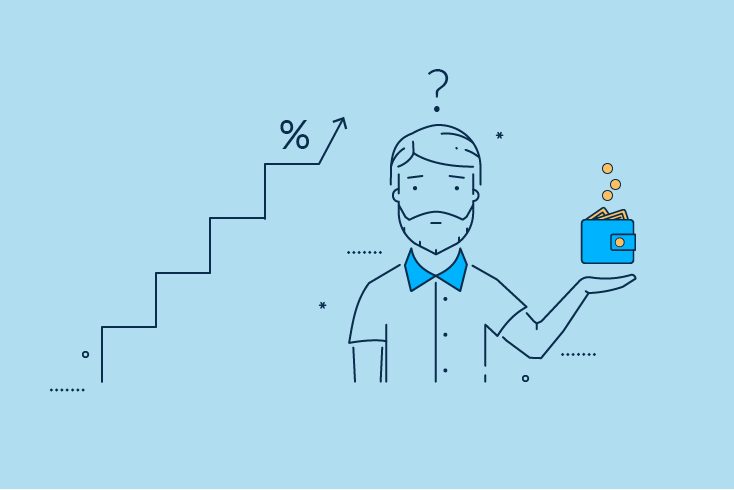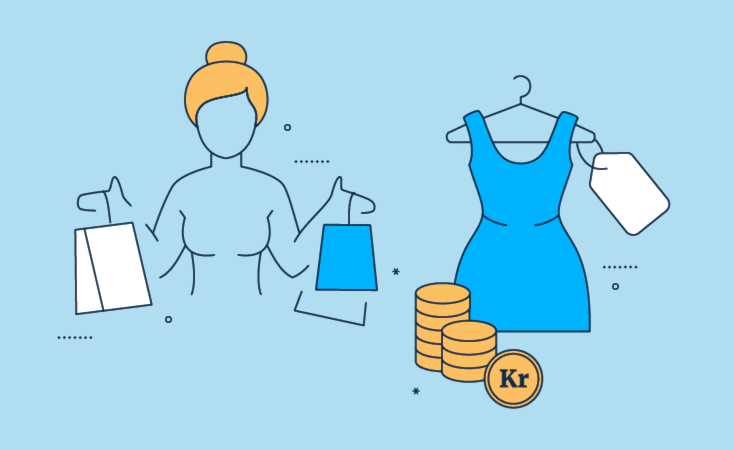How does inflation affect you?

What happens to your savings?
If you have savings in a bank account, the amount itself will rise as you receive interest. We call this the nominal value. However, inflation reduces the real value of your money, meaning how much goods and services you can buy. The higher the inflation, the more the real value will fall.
What happens to your debt?
The amount you have borrowed is not affected by inflation, but inflation will reduce the real value of your debt. In particular, after years of wage and price inflation, the value of a loan will be markedly lower compared to your income or what you can buy for the amount you borrowed. This makes repaying your original loan easier, but if you now want to buy something equivalent to what you bought for the loan a few years ago, you will now have to borrow more.
What happens to your purchasing power?
Inflation reduces your purchasing power as your wages now buy you fewer goods and services than they did before. If wage growth is higher than inflation, your purchasing power will increase.
What are real interest rates and real wage growth?
Real interest rates and real wage growth are common terms for describing economic developments. They describe the level of interest rates and wage growth when adjusted for inflation.
If the interest rate on your bank deposit is 1 percent and the rate of inflation is 2 percent, the real value of the deposit will depreciate even if the savings amount increases. The real interest rate for the savings is then negative.
If wage growth is 1 percent and the rate of inflation is 2 percent, the real value of your wages will depreciate even if your pay is higher. Your real wage growth rate is then negative.
Having savings in a bank account is only profitable if the real interest rate is positive. For wage growth to strengthen purchasing power, real wage growth must be positive.
Short summary
- Inflation reduces the real value of your money.
- This means that a defined amount of money will buy you fewer goods and services than before.
- For the real value of your savings or wages to increase, it must outpace the rate of inflation.
